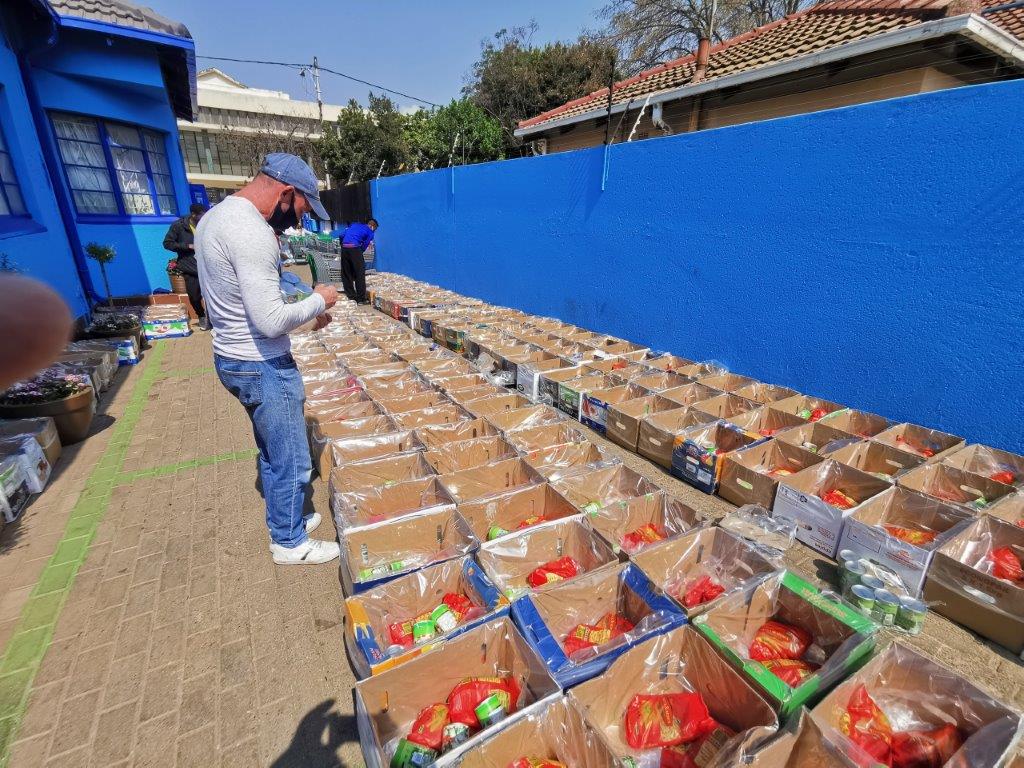
Community

Communal organisations help make Rosh Hashanah special
With Rosh Hashanah upon us, communal organisations are hard-pressed to make sure that every community member is looked after, but the number of people needing help has spiked since the onset of the pandemic.
The Chevrah Kadisha – which looks after the lion’s share of those in need – has recorded a 35% increase in the amount of financial assistance that it gives families towards living costs. In the Western Cape, Jewish Community Services Cape Town (JCS) recipients have increased more than 100%.
The Jewish Women’s Benevolent Society (JWBS) has also noticed an increase in the number of people in need over the past few years. “With COVID-19, it’s especially hard,” said Maureen Disler, the co-chairperson of the organisation which has survived for more than 127 years. “People have lost their jobs, and some people ask for food vouchers. They haven’t got enough to feed their children.”
The Chevrah Kadisha gives special yom tov meals to the 850 elderly and physically or mentally challenged people living in its residential facilities. However, its wider reach extends to nearly 11 000 people, helping them with living costs, food, healthcare, education, accommodation, and social services throughout the year.
“The Chev is unique in the sheer volume of people it helps, the duration of time that it helps them for, and the diverse range of its activities from cradle to grave,” said Saul Tomson, the chief executive of the largest Jewish welfare organisation on the African continent.
The organisation distributes R5 million every month to families in the community, totalling R60 million for the year. This is a significant increase from pre-COVID-19 times. It’s also involved in education, with nearly R1 million a month going towards 279 children in Jewish schools and remedial schools, as well as 130 university students who are being educated through the Chev’s interest-free student-loan programme.
“Particularly now leading up to Rosh Hashanah, a lot of assistance is being distributed through our COVID-19 emergency release fund,” Tomson said.
Smaller organisations like Yad Aharon & Michael have also been inundated with new requests over the past two years.
“Whereas the number of families who receive weekly food parcels from us stands at about 700, families who aren’t in a position to provide festive meals for Rosh Hashanah through to Sukkot apply for food parcels, which we gladly provide, thereby increasing the number of parcels packed by anything between 20 to 30 plentiful yom tov hampers,” said Alice Friedman, the chief executive of the organisation founded more than 23 years ago.
Ingrid Koor, the chairperson of the Union of Jewish Women (UJW), which assists just more than 100 people over Rosh Hashanah, said, “There are many more people in need as many families have emigrated, leaving elderly people. The economic downturn and COVID-19 have made things more difficult. With, unfortunately, many more elderly passing, our numbers have remained the same for a few years.”
The UJW’s flagship project, Kosher Mobile Meals (KMM), will supply festive cooked kosher Rosh Hashanah meals, plus honey for a hopefully sweeter year. “We will also distribute yom tom joy parcels supplied by the HOD [Hebrew Order of David] consisting of treats and non-perishable food to recipients,” said Koor. “KMM distributes kosher cooked meals to those Jewish elderly over 75 who are unable to cook for themselves.”
For Rosh Hashanah, Yad Aharon & Michael is handing out double portions of seasonal fruit, apples and vegetables, supplemented by meat, chicken, fish, eggs, and dairy products. Its dry goods hampers include honey, grape juice, challahs, and honey cakes in addition to all the basic requirements needed to prepare yom tov meals and usher in a happy and sweet new year.
“I’m confident our families won’t need to shop for extra food for two days of yom tov,” said Friedman. “Our aim is to enable them to enjoy plentiful meals free from worry and anxiety. This is made possible by the community’s renowned generosity.”
JWBS is giving money to its recipients to sweeten their Rosh Hashanah. It also recently gave out activity packs. “People are lonely and isolated, so we’ve given them each an activity pack. They really look forward to it,” said Disler.
This Rosh Hashanah, the JCS’s hampers include round challot, ready-made vegetable soup, roast chicken, pumpkin pie, vegetables, salads, and strawberries.
“Of course, we add in the apples, honey, grape juice, and candles,” said Lauren Cohn, the chairperson of the JCS Tikvah Foodbank Committee. “In addition, we include a Tupperware container filled with teiglach, meringues, dried fruit, and Sparkles. Every food hamper has a special Rosh Hashanah card handmade by children in our local Jewish schools. These food hampers are well thought out, meticulously planned, and beautifully presented with the love, dignity, and respect that we all deserve.”
The JCS is raising funds through the Rosh Hashanah Appeal, which entails sending out e-cards on behalf of the Tikvah Foodbank’s donors. The organisation also relies on volunteers.
“Our Rosh Hashanah and Pesach [fundraising] campaigns are the biggest,” said Friedman. “We have a Rosh Hashanah campaign running at the moment. It’s widely posted on social media, advertised on street poles in suburbs known to be frequented by the Jewish community, and in the SA Jewish Report. We’re also selling beautiful yom tov gifts at various points in Joburg, which is a successful initiative.”
The JWBS phones people to ask for donations as COVID-19 restrictions prevent it from running traditional functions such as theatre shows and golf tournaments.
Since many of the UJW’s recipients don’t have family nearby or the funds to pay for their meals, KMM is run mostly on donations. “We launched a fundraising campaign on social media and via our databases to raise money,” said Koor. “We also phoned people to ask for donations.”
Although the UJW’s principal need is donations, it also needs volunteers to chat to its isolated elderly when it’s safer to do so. “KMM recipients are more isolated since COVID-19,” said Koor. “We used to host elderly people to a Wednesday lunch at our UJW house. These people are sorely missing the social interaction.”
Asked what advice she has for those wanting to help others on Rosh Hashanah, Friedman said, “Teshuvah, tefillah, and tzedakah are the three elements which Hashem takes into account when finalising our verdict for the coming year. I’m fully cognisant that everybody is financially stretched, but helping those in our midst who cannot celebrate Rosh Hashanah and the chaggim without our assistance is a communal responsibility. Treating the needy with sensitivity, kindness, and empathy underpins Yad Aharon’s brand of chesed, and addressing the harsh reality of hunger and destitution in our midst forms an integral part of our mission.”










